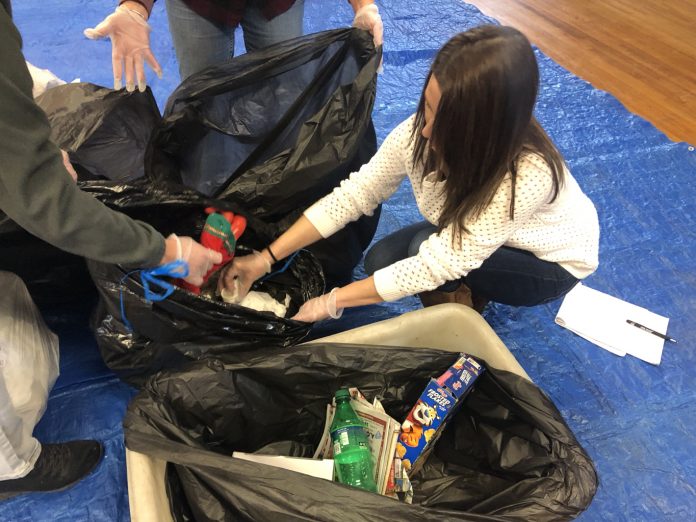BURRILLVILLE – Do Burrillville residents understand the state’s recycling rules, and are they trying to follow them?
Donning plastic gloves with her white shirt and healed boots, Andrea Hall, Burrillville’s intrepid recycling coordinator, dug through a bag of discarded, messy, and undeniably gross garbage in search of the answers.
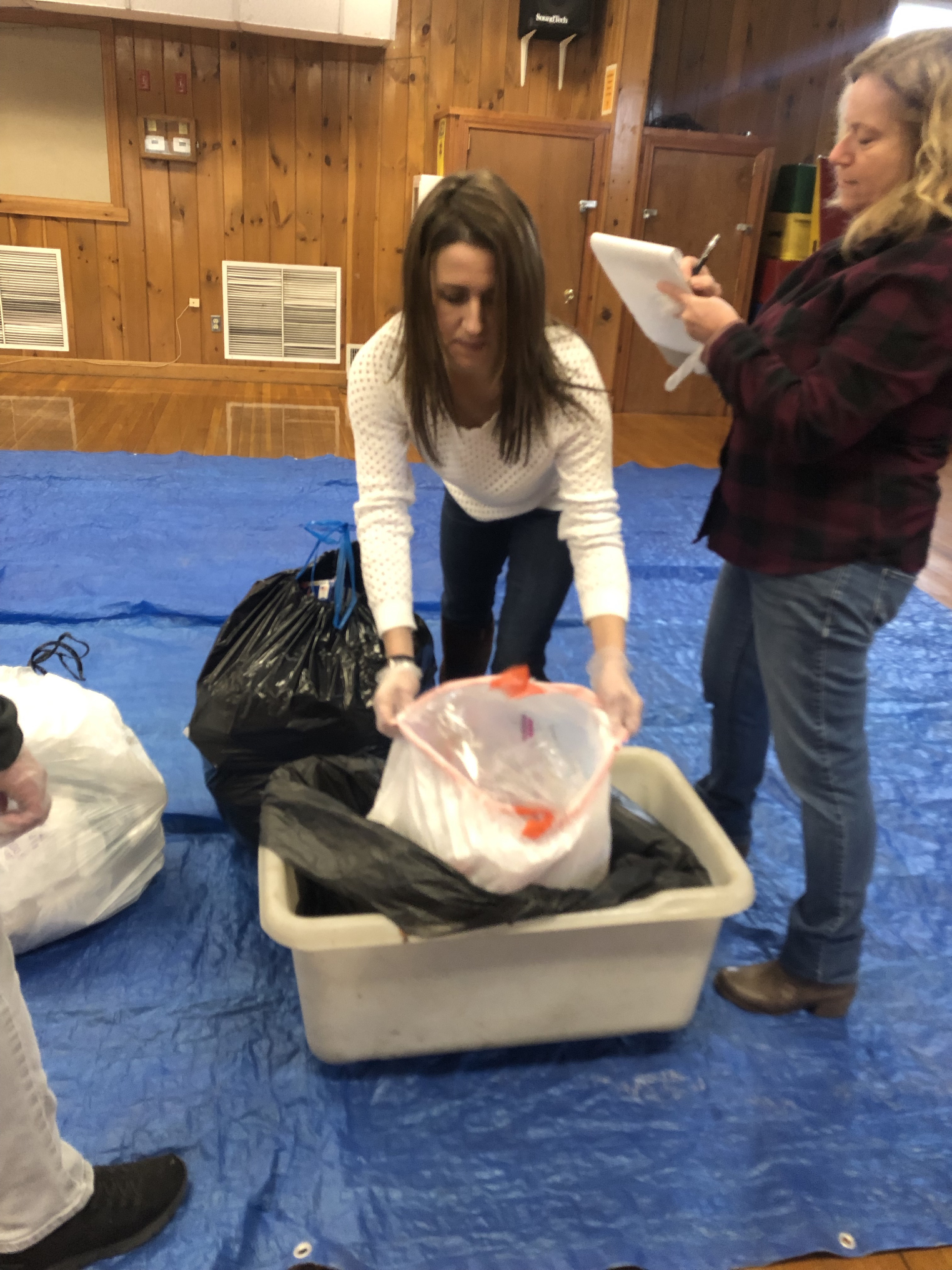
Hall met with Donna Kaehler from Keep Blackstone Valley Beautiful and a peer from a neighboring town at Beckwith-Bruckshaw Lodge this week for an annual close-up look at the region’s trash, riffling through bags to see how well residents are following Rhode Island’s recycling guidelines
“Unfortunately for the past three years, it was pretty stagnant, but this year could be the year,” said an optimistic Kaehler.
While the results weren’t all bad it was not, in fact “the year,” when Blackstone Valley residents showed off their understanding and commitment to ways to reduce trash.
Officials from Woonsocket and Smithfield typically join Hall in the dirty but enlightening task. Woonsocket’s superintendent of solid waste, Michael Debroisse, wasn’t able to make it on Tuesday, Feb. 12, but the women were joined by Smithfield’s Recycling Coordinator Melissa Chaput.
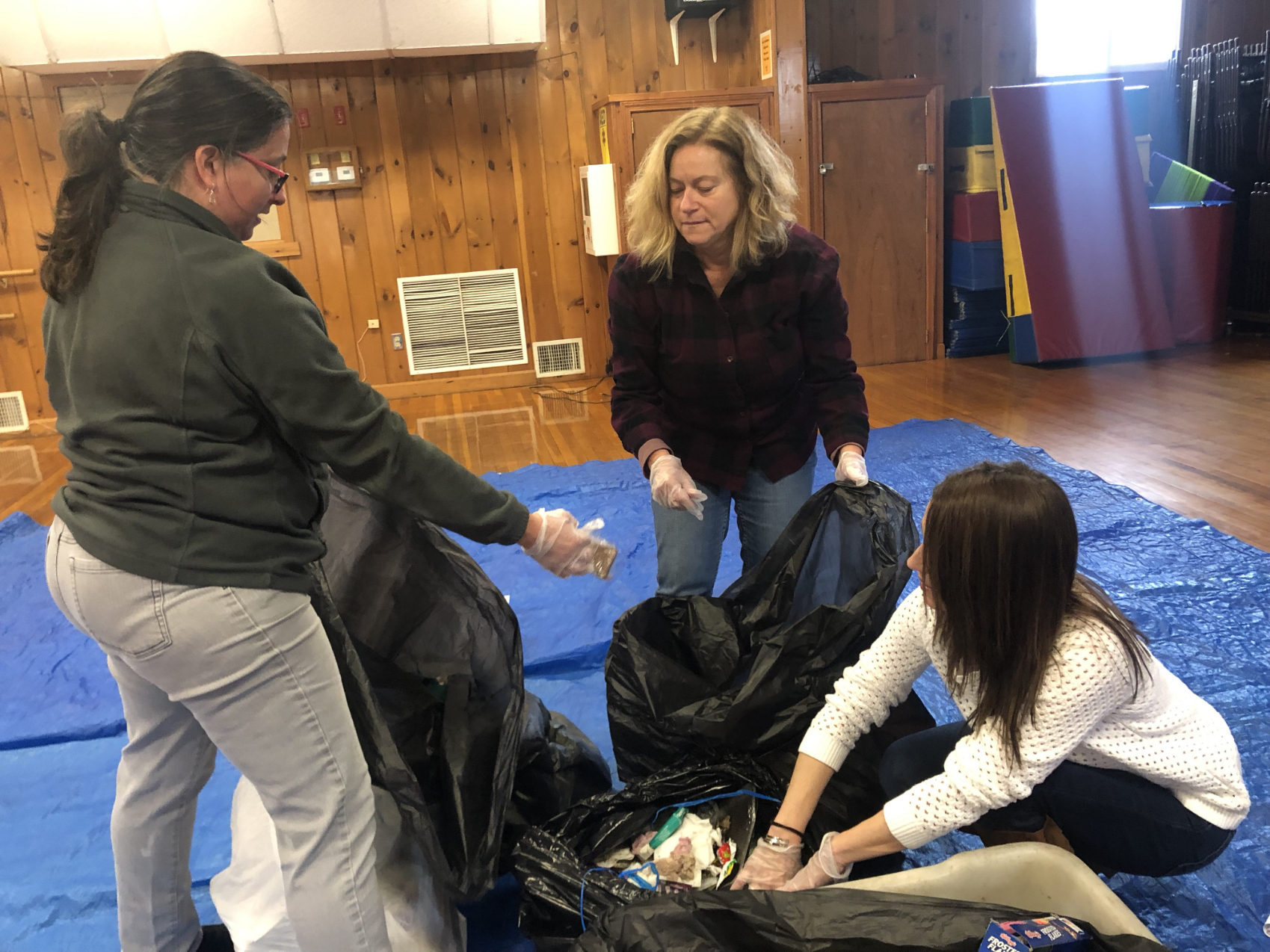
Each year, participants grab random garbage bags from homes in their municipalities to see just how many recyclable items were trashed that week. The bags all are taken from homes that have recycling bins out. Hall also grabbed a few of those containers, to see if those contents met the standard.
The stakes in getting their communities to follow recycling rules, they say, are high. About 3,800 tons of trash are buried each day at the Central Landfill in Johnston, and at the current rate, the facility will reach capacity by 2034.
And currently, there is no concrete plan in Rhode Island for where the garbage will go once it’s full.
There are also financial implications. There’s no tipping fee to dispose of recyclables, but trash is delivered at a cost of $47 a ton.
“We should be way ahead of this,” said Kaehler, noting that the rules in the state have been pretty much the same for years.
First up for analysis was a 20-pound trash bag from Burrillville. Hall started by taking out easily and obviously recyclable items; papers, bottles, yogurt cups, paper towel rolls and cardboard cereal boxes.
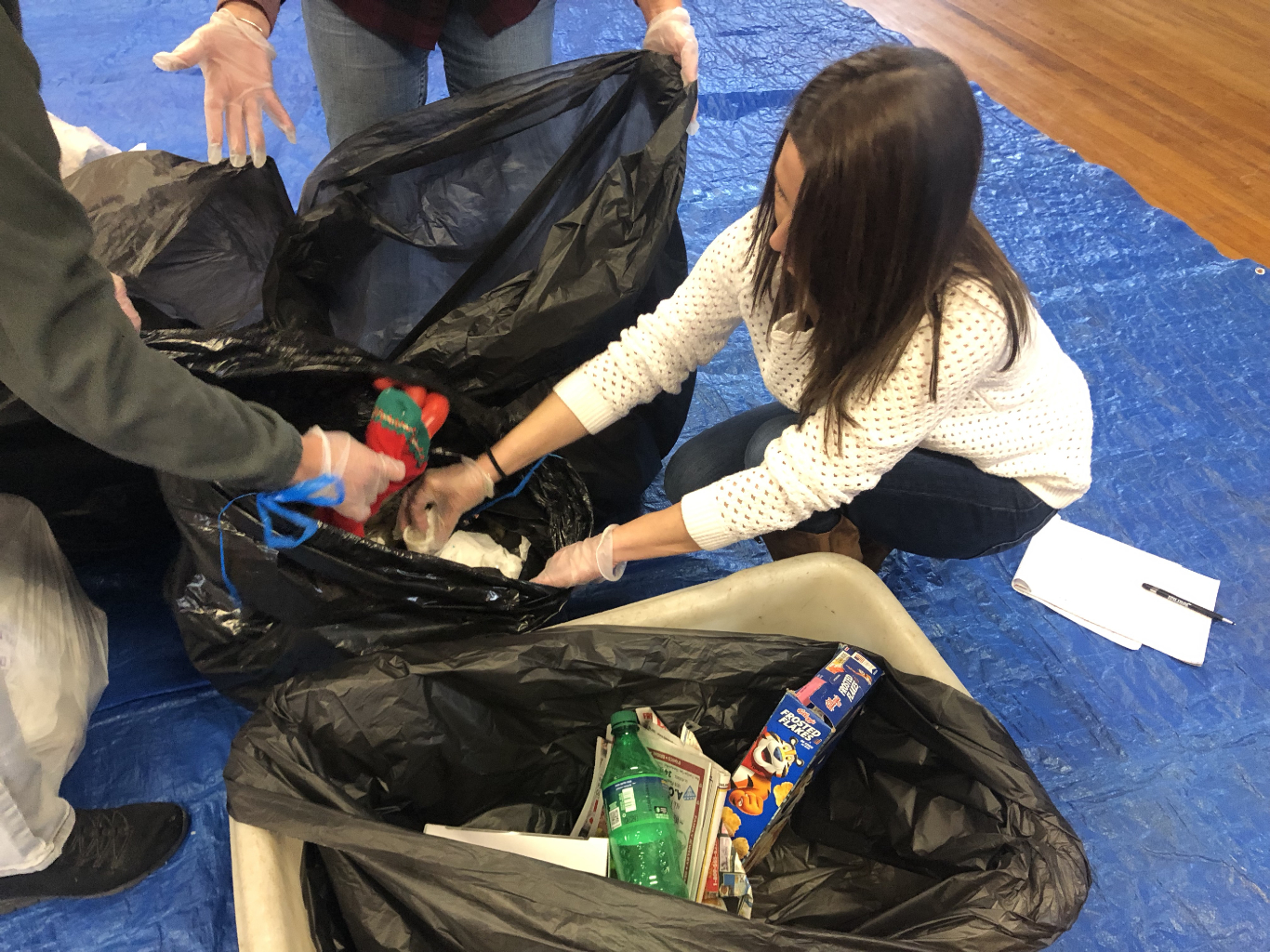
“So far nothing is trash,” she said. “That’s embarrassing.”
Next, the crew took out diversion – items that can’t go into bins kept at home, but can be dropped off locally, like plastic bags that go into reSTORE bins in shops including IGA, Target, and Walmart. The bins accept not only plastic grocery bags, but also bread bags, and items such as the casing that comes around packages of bottled water.
“There’s bins for it everywhere,” said Hall. “There’s no reason for them to be in the trash.”
Hall’s bag included several items of clothing – articles that – if clean, dry and odorless – can be either repurposed or broken down to create other things.
“It can be stained or torn,” explained Chaput. “Those will become wall insulation or carpet padding.”
“We have a container at Whipple Ave. for textiles,” added Hall.
All told, 15 of the 20 pounds could have been kept out of the state’s landfill.
A five-pound bag from Woonsocket had four pounds of items that could have been recycled, and a nine-pounder from Smithfield had two.
Two bags of recycling showed that one family mostly understood the guidelines. Items were loose, not placed inside each other, as required for easy sorting. Everything in the container was accepted under the state’s recycling program save two items: a pair of bike tires.
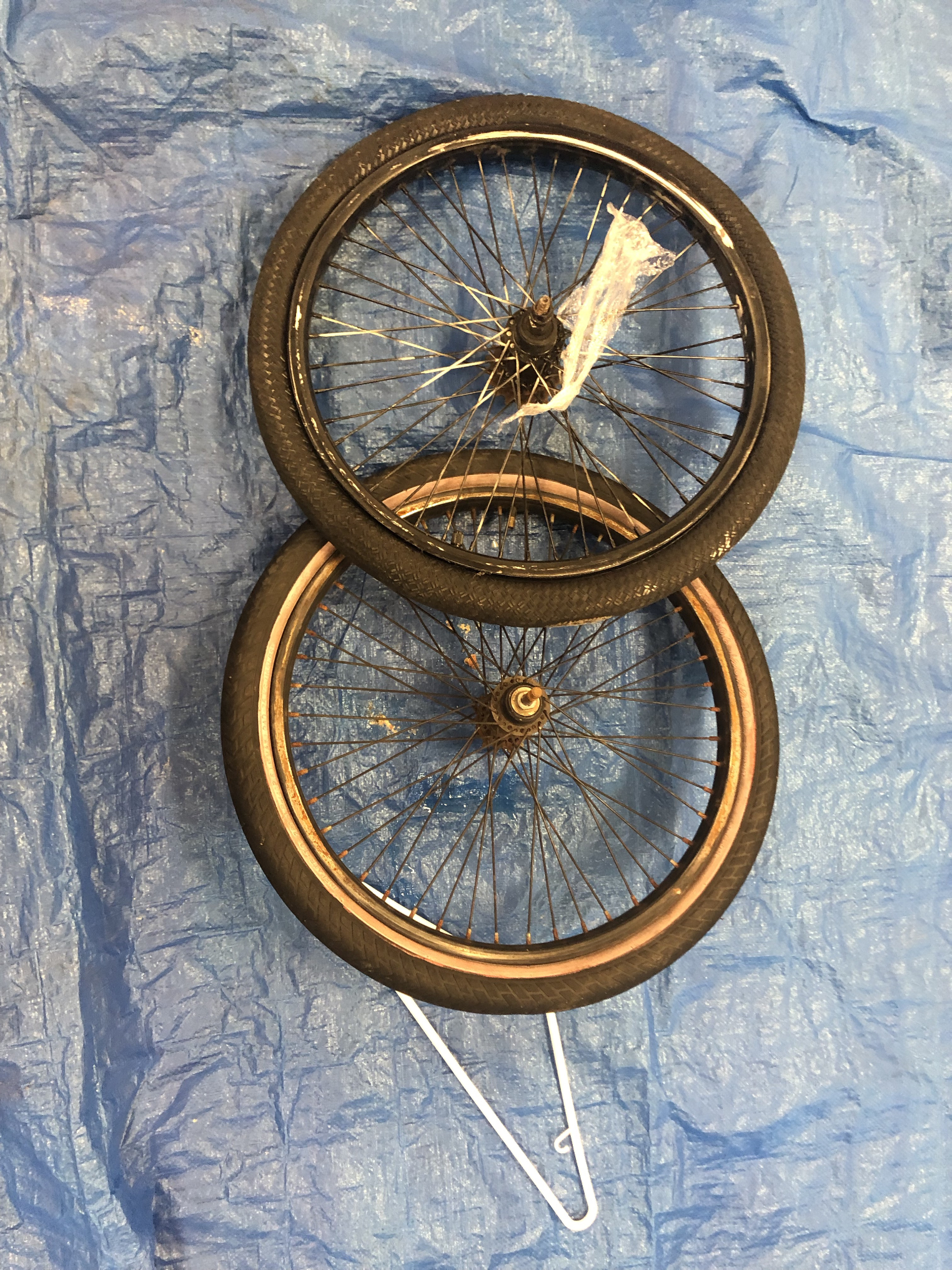
Still, the tires had the potential to negate the whole process. Loads of recycling are spread out for sorting and looked at as they arrive at the facility.
“If it’s 10 percent or more they fine you,” said Hall. “It’s called a contaminated load.”
And the second bag of recycling really had potential to cost the town. Hall dumped it out to reveal piles of plastic bags and dirty tissues.
“I think it shows a good representation: one family that was doing it the right way and one that wasn’t,” said Hall. “We’ve just got to get the word out.”
When a load is rejected, she notes, the town pays a $250 handling fee, and the entire truckload of tonage becomes trash at a cost of $47/pound. Burrillville has already had two contaminated loads this year, for a total 9.39 tons of recyclables that had to get tipped as trash with a total fee of $1,000.73.
The day of sorting included some disappointment for the crew, but it was revealing. And the contents of the trash bags could have made their own good, albeit unspeakably gross story.
Safe to say, these ladies are committed.
To learn more about recycling in Burrillville visit https://www.burrillville.org/refuse-recycling/pages/recycling-faqs
Editor’s note: An original version of this article misstated the amount of recyclables discovered in Smithfield’s trash and listed the tipping fee as $47 a pound, rather than a ton. We apologize for the errors.





